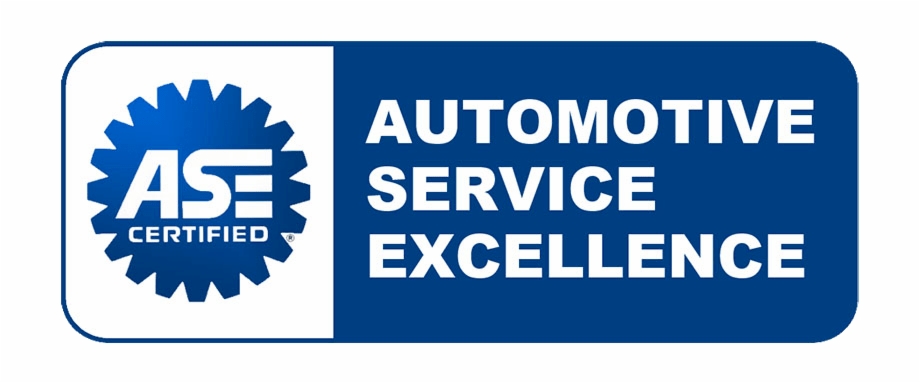If you’ve ever gone to an auto repair station and saw big blue signs stating “ASE Certified Mechanics” you might have wondered what that really means and whether or not it was important.
The fact is that anyone, literally, anyone can hang a sign on a building that claims they are auto mechanics. Mechanics do not need a license, such as hairstylists, they are not required to attend any schooling, unlike chiropractors, and there are no minimum standards to be met.
That sounds shocking when you think about the damage someone could do to your vehicle, and that they could even cause injury or death if they were incompetent. Think of someone who knows next to nothing working on the braking system of your vehicle and this thought becomes crystal clear.
What Does ASE Mean?
The non-profit group National Institute of Automotive Service Excellence (ASE) began certifying mechanics back in 1972. While anyone can claim to be an auto mechanic, those who are ASE Certified underwent extensive testing to prove that they know what they are doing.
The ASE was created to protect the automotive consumer and shop owner. By testing and certifying mechanics, both customers and shop owners can feel confident that they are working with a true automotive professional.
ASE certification is tangible proof that a person has the technical knowledge and the experience that you want from an automotive mechanic.
How Does the ASE Certification Process Work?
Those who wish to be certified must first prove that they have been employed in the automotive field for a minimum of two years. Applicants must then apply to take tests in certain areas, such as brakes, suspension systems, transmission, engines, etc.
These tests are not free, and each test has a set fee that the mechanic must pay for. These tests are only offered twice per year. If an applicant fails a test, they must wait 6 months to take it again.
The testing process is not an easy one. The tests are created by a national panel of well-seasoned automotive experts and professionals, including automotive manufacturers, engineers, aftermarket parts manufacturers, and more.
An applicant must have thorough knowledge about the subject. There is no way that an applicant can fake it or guess at the correct answers.
Those who pass and become ASE Certified must retake exams every 5 years to maintain their professional status. 
Certification Levels
While a mechanic may pass one or two tests, they must pass certain testing levels to obtain true certification.
For example, if a mechanic only works on brakes, they might feel it is sufficient for them to be ASE certified in brakes and nothing more since they don’t work on other systems.
However, a general all-around mechanic who wants to work on the entire vehicle must pass additional tests to become a true ASE Certified mechanic.
In the early 1990s, the automotive industry recognized that the ever-changing emission devices (smog controls) on vehicles were requiring mechanics who specialized in this area. This caused the ASE to create a special course of tests. Those who passed these exams earn the title of ASE Advanced Engine Performance Specialist L1.
Those with L1 certificates have proven that they are knowledgeable and experienced in emission failures and the diagnosis of drivability issues on the modern computer-controlled systems on today’s engines.
Other certification levels include the ASE Automobile Service Consultant C1. This certificate means that mechanics have excellent skills in communications, customer relations, shop operations, vehicle systems knowledge, and internal (co-worker) relationships.
You will find that most service advisors and shop owners or managers have the ASE C1 certificate.
The ultimate is the ASE Master Certificate. A mechanic must achieve certification in all required testing series. For example, there are 8 tests involved for general automotive mechanics. When you pass all 8 tests, you achieve the Master Certificate in that area.
There are also Master Technician Certificates for Medium and Heavy-Duty Trucks, School Buses, Engine Machinists, and so on.
Achieving one or more Master Certificates is a huge accomplishment. To keep this certificate, a mechanic must continue his education and take tests every few years to keep the certificate valid and current.
Why Does Having an ASE Certification Matter?
Imagine you are having open-heart surgery. Wouldn’t you want to know that your doctor wasn’t just a GP? You would want to know that your surgeon was a heart specialist, that they had advanced training and education, and that they were licensed by the hospital as a cardiac specialist, right?
While your vehicle may not be as important as your heart, you still want (and deserve) to know that qualified mechanics are working on your car.
ASE Certified Mechanics assures you that the person behind that wrench has more than just basic knowledge about cars and is a master mechanic who has proven that they have skills and knowledge.
Having one or more certifications from the ASE is one of the highest levels of certification a mechanic can receive. If you don’t see the big blue and white sign stating “We employ ASE Certified Mechanics” you should keep driving.
We Know How Important ASE Certification Is
You can trust the mechanics at My Mechanic to do things right. The owner, Mike Larson, is an ASE Certified Master Technician L1 (not to mention a mechanical engineer).
We understand that your vehicle is important to your life and we value your trust.
Don’t waste time taking your vehicle to a fly-by-night shop where someone’s high school kid is doing the work. Trust your vehicle to qualified mechanics with ASE Certification and years of experience under their belt.
We are ready to help and answer any question you might have, whether it’s what type of oil your car needs or what does that Check Engine light really means.
Call the professional, ASE Certified mechanics at My Mechanic for an appointment today.

